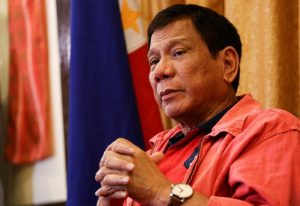 President Rodrigo Duterte recently inked a new and improved law aiming to stop money laundering from happening. The Anti-Money Laundering Law, as it is known will prevent sweeping illicit capital from casinos under the carpet.
President Rodrigo Duterte recently inked a new and improved law aiming to stop money laundering from happening. The Anti-Money Laundering Law, as it is known will prevent sweeping illicit capital from casinos under the carpet.
This move will also leave the Philippines out of the blacklist of the Financial Action Task Force (FATF) because the country will be making conscious efforts to improve its current condition. This Wednesday saw the signing of Republic Act 10927, which will make sure that there are no illegal cash inflows happening in the casino field.
This happens right in time for one of the most vital meetings in the field, the APG (Asia/Pacific Group on Money Laundering) one. Senator Chiz Escudero, Chairman of the Senate Committee on Banks, Financial Institutions and Currencies, said that this decision is of great benefit for the country because it will no longer be threatened by being under stringent financial monitoring. Being on the blacklist of the Financial Action Task Force can also lead to affecting the remittances from Filipino workers based out of the country.
The range of the new law is quite wide and it extends its reach to all kinds of casinos, including online and ship-based operations. According to the text of the law, all transactions worth PHP5 million (US$100,000) should be immediately reported to the Anti-Money Laundering Council (AMLC). Meanwhile, PHP500,000 (US$10,000) is the threshold for non-gaming covered persons. Such covered persons can be casinos of all sorts and types and their cash transactions related to gaming operations.
Another thing which the new law will enforce is to authorize the Court of Appeals (CA) with the power to issue a 20-day ban order on monetary instruments and property if illicit activity is detected. During this time the Court of Appeals will organize a summary hearing which will decide if the freeze order should be lifted or to extend its period to up to six months.
There was an already existing anti-money laundering law in the Philippines, but its legitimacy was questioned following the bank heist which happened in Bangladesh back in 2016. In that heist, as much as US$81 million of stolen cash was laundered through the Philippine gambling industry. According to Nestor A. Espenilla Jr., Philippine Central Bank Governor, the Anti-Money Laundering Council will soon organize a meeting on which to talk through the implementing of the rules and regulations of the newly signed law.



















